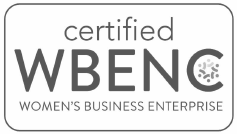Messaging platforms, sometimes referred to as language platforms, are an important foundational component of the branding process. They provide a baseline for talking about one’s company or cause and are the groundwork upon which everything from ad and website copy to email marketing and social media messaging are built upon. For startups, a strong messaging platform is just as important as an eye-catching logo and compelling tagline. For companies with rich histories, updating one’s language platform to reflect the current state of an organization is just as important as ensuring the contact information on your website is up-to-date.
Brand-building from the ground up
Think of a messaging platform as the language-centered companion to your brand’s style guide. Just as the style guide lays out the dos and don’ts of colors, logo usage and imagery, the language platform spells out which messages take the lead, which play supporting roles, and which phrases and descriptors are passé or taboo. Much like the house that isn’t built upon a strong foundation, a company or cause which bypasses the message-building component of the branding process, can struggle with maintaining a solid structure for how they talk about their organization. When branding a new company or building/revamping a marketing strategy, developing a language platform is an important part of the process.
Who you are, what you do and why you do it
Language platforms help to create alignment between what a company does, who they serve and why it matters. This helps to ensure well-rounded messaging that reflects the depth and breadth of an organization, as well as consistency across marketing materials and amongst spokespersons. A messaging platform can also help to establish a messaging hierarchy – ensure the most salient points about a company or cause are the most prominent.
Minimizing confusion and maximizing clarity
In a cluttered and competitive marketplace, ensuring target audiences understand who you are, what you do and what makes you unique is imperative. Developing a language platform allows organizations to be strategic about how they refer to their organization and proactively address any common areas of confusion. For example, if you provide business consulting services to financial services firms and there are two other companies in your market offering comparable services, it is important to developing messaging that reinforces your unique value proposition, be it how you work with clients, a proprietary process or technology that you offer, or the type of organization that is a “right fit” for you.
A bank of ready-to-use content
Messaging platforms offer businesses and nonprofits a bank of content to pull from when they are writing newsletter copy, updating a website or drafting a presentation for an upcoming conference. This helps organizations to not only save time, but minimizes the chances of going off-brand when scrambling to meet a tight deadline. It also helps to ensure that everyone from the CMO to the marketing coordinator and administrative support staff are working with the same bank of materials, which helps to strengthen brand consistency.
While developing an effective messaging platform requires a delicate balance of strategy and creativity, it is an essential component of one’s marketing toolkit. From helping to shape one’s elevator pitch to informing key selling points for products and services, language platforms help to ensure brand consistency and a consistent focus on audience-driven messaging.
Messaging platforms and communications plans work hand-in-hand to help organizations get strong content in front of the right audiences at the right time. For help mapping out your communications strategy, contact us!

